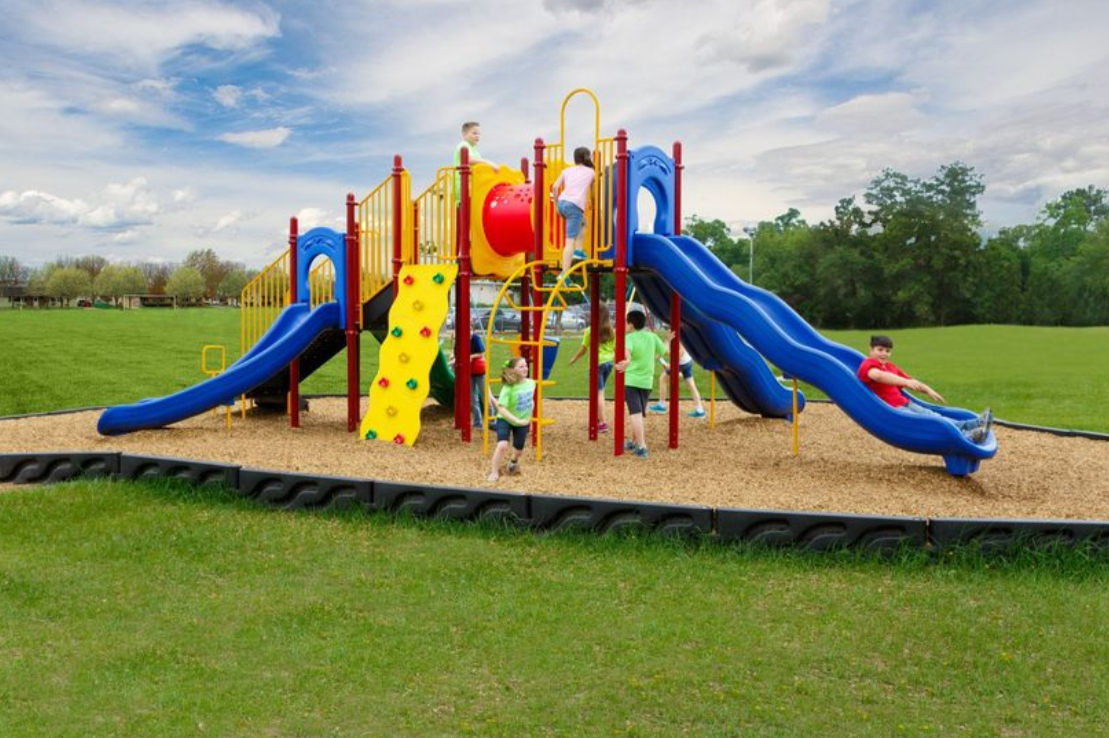Children experience great excitement when they play on the playground, whether it’s swinging, sliding, climbing, or running. However, this excitement can also lead them to act impulsively, without regard for the consequences of their actions or the rules of play. Therefore, children must learn to moderate their emotions and develop self-control, which will help them regulate their thoughts and behaviors.
Playgrounds are places of fun and excitement for children. Still, in addition to allowing them to play and socialize, these playgrounds also play a crucial role in children’s self-control development. This article will explain how playground activities can cultivate self-control in children.
Stimulates executive intelligence
Self-control is considered part of executive intelligence, which allows a person to set goals, make plans to achieve them, execute projects, and assess the outcome of their work. This allows the child to learn to internalize rules, solve problems according to set parameters, and be rational about emotions when necessary.
Development of emotional skills
A playground is a place where children experience a wide range of emotions. From the initial excitement of arriving at the playground and seeing all the possibilities, children learn to deal with frustration and control their feelings while waiting their turn to get on a swing or participate in a game. As they face these emotional challenges, children develop self-regulation skills and learn to control their impulses.
Learning to wait
Playground activities also teach children the importance of waiting and patience because watching other children enjoy specific actions, and they must learn to wait their turn. This process provides them a valuable opportunity to practice patience and learn to respect the rights and wishes of others. In this way, children master these skills, and moderation is encouraged in their interactions and behavior on the playground, in school, and daily life.
Cognitive and physical stimulation
Activities such as climbing play structures, jumping, running, and balancing on the playground require coordination and concentration. Hence, as children challenge themselves in these activities, they learn to self-regulate and control their movements to avoid accidents or injuries. This repeated practice of self-restraint can also be transferred to other areas of children’s lives, not just playgrounds.
Encouraging empathy
As a place for social interactions, playgrounds are ideal for children to learn to share, cooperate, and empathize with others. Participating in group activities and understanding that all children deserve a turn to play encourages a respectful and empathetic attitude toward others. Developing empathy is fundamental to self-control, as it involves considering the needs and feelings of others before acting.
Creating routines and boundaries
Children learn to follow specific rules and boundaries at the playground to ensure everyone’s safety and enjoyment. These rules, such as no pushing, no climbing on unsafe structures, or using equipment properly, help children develop a sense of self-control and responsibility. By internalizing these rules, children learn to self-regulate and make conscious choices while playing.
Overcoming frustration
All these activities help the child learn to overcome frustration since by not having control over certain circumstances (for example, waiting their turn on the playground or not using specific equipment of the playground), they are facing frustration that will be controlled by talking, keeping calm and trusting in others. It is not about impositions, but about their understanding that there are rules, regulations, and even risks that they must face and that they cannot always do what they want.
What did you think of this topic? Do you want to know more about self-control in children?
If you want a playground for your project, community, school, daycare, or public park, contact us by visiting the following link.
